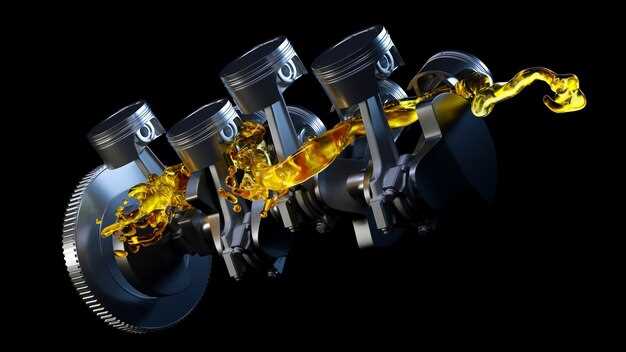
Routine maintenance plays a crucial role in ensuring the optimal performance of diesel engines. With their powerful torque and fuel efficiency, diesel engines are a popular choice for both industrial and transportation applications. However, to maintain their longevity, regular upkeep is essential. Skipping maintenance can lead to significant issues that affect engine performance and overall operational costs.
One of the primary benefits of routine maintenance is the prevention of costly repairs. By regularly inspecting the engine components and addressing wear and tear, operators can avoid unexpected breakdowns that can lead to expensive downtime. This proactive approach not only extends the life of the engine but also enhances its reliability, allowing businesses to plan their operations more efficiently.
Additionally, routine maintenance helps optimize fuel efficiency. Diesel engines, while inherently more efficient than their gasoline counterparts, can lose performance over time if not properly maintained. Regular checks and adjustments to fuel systems, air filters, and lubricants ensure that the engine operates at its peak efficiency, resulting in lower fuel consumption and reduced emissions.
Moreover, maintaining diesel engines according to a regular schedule contributes to their overall environmental impact. Engines that are well-maintained produce fewer pollutants, aligning with stringent environmental regulations. This aspect not only benefits the environment but also aids companies in meeting compliance mandates, further solidifying the importance of routine diesel engine maintenance.
Cost Savings Through Early Issue Detection

Regular service of diesel engines plays a crucial role in identifying potential problems before they escalate into serious failures. By conducting routine maintenance, technicians can pinpoint issues such as leaks, wear, and unusual vibrations that may indicate deeper mechanical concerns. Early detection of these issues allows for timely interventions, which can substantially reduce repair costs.
Addressing minor faults during routine service prevents them from evolving into major malfunctions that often require expensive repairs or even complete engine replacements. The financial implications of neglect can be severe, as major repairs not only involve higher parts and labor costs but also potential downtime that affects productivity and revenue.
Additionally, routine checks can optimize fuel efficiency by ensuring that all components are functioning correctly. This results in direct savings on fuel costs, as a well-maintained diesel engine operates more efficiently. Furthermore, early issue detection can extend the lifespan of engine components, leading to lower long-term ownership costs and improved return on investment.
In conclusion, investing in routine maintenance services for diesel engines is vital for early issue detection. This proactive approach not only enhances reliability but also results in significant cost savings by minimizing unexpected repairs and optimizing engine performance over time.
Improved Fuel Efficiency and Performance

Routine maintenance of diesel engines significantly enhances fuel efficiency and overall performance. Regular checks and servicing ensure that components such as fuel filters, injectors, and air intake systems are clean and functioning optimally. Clean fuel and air supply result in better combustion, promoting maximum energy output from each drop of diesel fuel consumed.
Moreover, maintaining the correct oil levels and using high-quality lubricants can minimize friction between moving parts. This reduction in friction not only improves engine performance but also contributes to lower fuel consumption, helping operators economize on operating costs over time.
Furthermore, well-maintained diesel engines experience fewer breakdowns and malfunctions, ensuring consistent performance under various operating conditions. This reliability not only extends the longevity of the engine but also enhances its ability to perform at peak efficiency, especially during demanding tasks.
In essence, regular maintenance of diesel engines leads to improved fuel efficiency and performance, proving to be a wise investment for anyone looking to maximize their engine’s potential while ensuring its long-lasting operation.
Extending Engine Life with Scheduled Servicing
Regularly scheduled servicing is crucial for maintaining diesel engine performance and longevity. This proactive approach not only enhances efficiency but also significantly extends the lifespan of the engine components. By adhering to a routine maintenance schedule, owners can minimize the risks of unexpected breakdowns and costly repairs.
During scheduled service, important checks are performed on critical engine parts, such as the fuel system, air intake, and lubrication system. Fuel filters are replaced to ensure optimal fuel delivery, while the air filters are cleaned or changed to prevent contaminants from entering the engine. These simple tasks can prevent excessive wear and tear, thus prolonging the engine’s operational life.
Additionally, regular oil changes are vital in maintaining the health of a diesel engine. Fresh oil reduces friction and protects moving parts from overheating and damage. Over time, old oil can become contaminated, leading to decreased lubrication and increased wear, ultimately shortening the engine’s life.
Moreover, scheduled servicing allows for early detection of potential issues. Mechanics can identify problems such as leaks, abnormal noises, or unusual exhaust emissions. Addressing these concerns promptly can prevent minor issues from escalating into major failures that could result in extensive and expensive repairs.
In conclusion, committing to a routine maintenance schedule for diesel engines is essential for extending their life. Regular servicing not only enhances performance but also assures reliability by safeguarding against unforeseen complications. Maintaining your engine properly is an investment in its future, ensuring it operates efficiently for years to come.




